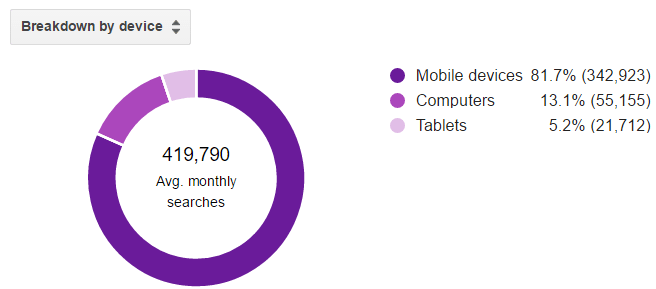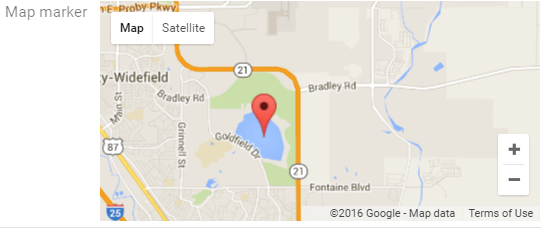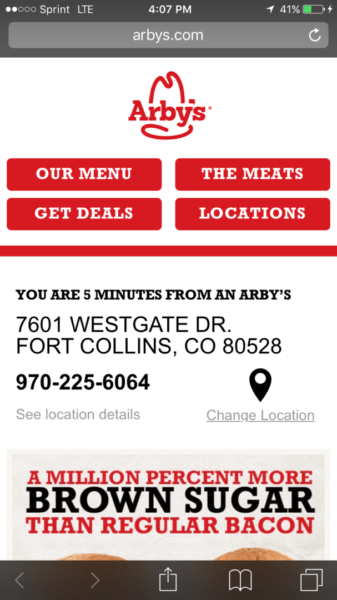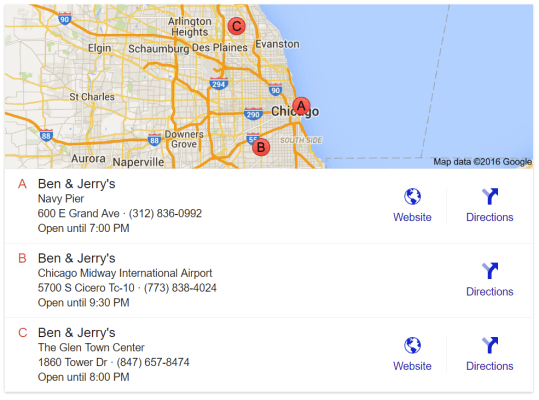4 reasons the world would end at the demise of local SEO
It's hard to imagine a world without local search. Columnist Lydia Jorden delves into four different industries that must optimize for local search, paired with a specific strategy to help optimize for streamlined customer searches. Does your local search strategy encompass these techniques?

Nuclear meltdowns, an earthbound asteroid, perhaps the rise of Donald Trump or Hillary Clinton as president (depending on your political views) — all might lead to the end of the world. Though the demise of local search might not necessarily rank among those aforementioned disaster scenarios, it certainly does take brainpower to remember life before local and imagine how the world would operate today if it vanished.
Just the other day, I was gearing up to take a road trip, and my very cautious mother presented me with eight maps covering different areas of Colorado, Utah, Nevada and California — with a very meticulous route planned out.
“Now, when you see the sign for Las Vegas, make sure to follow that down until exit number… And when you need food, this map shows the exits past… “
In one ear and out the other (not my best daughter move), but it all got lost in translation from her generation to mine. I will just do a “near me” search to find any hospital, rest stop or fast food along the way, if necessary.
Google reported that mobile searches have outpaced desktop searches since May 2015. Near me searches have doubled from 2014 to 2015, with 80 percent of those searches coming from mobile devices. Regardless of whether the searcher is in a car, bus, Uber — whatever — those searchers are showing intent to go to the specific location.
If the location for the search is not optimized, the customer gets lost and is unable to finish his or her search-to-purchasing cycle. Or even worse, the customer completes the cycle with your competitor. If you, as a business, are not optimizing your local listings to appear in the local pack, you are handing over revenue to your competitors.
Without companies that truly live, optimize and thrive in the local search space, we as consumers might find that our world is ending. After all, so many of us put “near me” searches at the center of our universe to fulfill our immediate need for a specific product or service.
Let’s review how our world might crumble without businesses optimizing for local, while also providing some strategy so you can be part of the solution to keeping mobile near me search results thriving:
1. No immediate access to healthcare
If hospitals stopped optimizing for local search, a searcher in a new area or one on vacation might find it extremely difficult to get medical care. Healthcare organizations truly have a prime spot in in the inbound marketing landscape for “near me” searches. Individuals who seek medical care via search are likely doing so as a last resort and are in need of care fast.
Google’s keyword planner sheds some light on just how often people utilize emergency medicine-related keywords on a mobile device versus desktop and tablet.
This chart above illustrates the average monthly searches on Google for all locations, all languages, for keywords including urgent care near me (368,000 average monthly searches), 24 hour urgent care near me (12,100 average monthly searches), and urgent care clinic near me (8,100 average monthly searches).
An important optimization tip
Ensuring that people reach the urgent care facility is important, and mapping the path is critical. Dire consequences could result if Google misses the mark and places a searcher behind the fence of the hospital, or in the incorrect area of a large hospital.
If you work in the digital healthcare space, check your local listings on hospitals and urgent care locations to avoid steering customers in the wrong direction.
In Google My Business, open the location that needs updating, click “address,” and update the map by positioning the marker to the correct area. You’ll want to zoom in on the map to get a more precise view. Click Apply once the marker is in the desired spot to create a seamless user experience.
2. Inability to search for careers geographically
For those who are without a stable career, the ability to find careers in a desired location is key to ensuring that the searcher’s world does not come crashing down. We need jobs to make money and afford life’s necessities, and when we can find jobs in our desired location, we are happy and the employers are happy.
It is so important for companies to optimize job descriptions for local search to adhere to a searcher’s query intent. Sites like Indeed, Monster and LinkedIn all allow for a “location” filter because we know that searchers have intent to narrow down their career options to a particular location.
Though employment sites (like Indeed) own most of the real estate on the SERP, adding potential perks of working in a specific location does help to optimize for local search. For example, Amazon highlights its Seattle headquarters on its jobs page, boasting the waterfront, diversity, arts community and more. Amazon ranks ninth on the SERP for the query “jobs in seattle wa” with the listing below:
Continue to optimize your website with images that have appropriate alt tags and videos with captions that appeal to the locality, as well as title tags and meta descriptions such as in the Amazon example above.
3. No way to satisfy late-night cravings
“It’s 3:00 a.m., and I don’t know why I was acting like a college kid tonight, but I’m really hungry and nothing is open — and if I don’t get food in me the world will end. (This is a fact!)”
Ah, yes. The dreaded late-night hunger that strikes your whole body. You pull out your phone and speak to Siri:
“Restaurants near me that are open”
Restaurants have a unique ability to thrive in local search, as restaurant-related searches have proven to drive in-store sales.
For restaurants that have multiple locations, it’s critical to build out webpages for each specific location. This strategy usually carries forward to multiple industries. Building out location pages for each restaurant allows for local optimization to each with geotargeted keywords for every location. Having multiple location pages can allow a more targeted page to appear in the local pack or SERP for a geotargeted query.
Arby’s is a good example of a company that builds out multiple location pages for its restaurants.
The screen shot below shows what appears when I ask Siri to find me the closest Arby’s:
Once I click through from the first listing to the website, I land on a dedicated location page that tells me exactly how far away I am from delicious curly fries. This is certainly what I would want to see when searching — a very personalized, streamlined navigation that gives me enough information, down to the distance in minutes.
4. An absence of on-demand ice cream searches
This one speaks for itself. Ben & Jerry’s, please continue optimizing your local listings with Ice Cream Shop under categories in Google My Business so we never miss a store, no matter where we end up.
Save the world
Although many of these examples are industry-specific, the strategies used within each can usually be echoed across a variety of industries. Overall, we’ve learned some important lessons through delving into how our lives would be different without local search. Be part of the solution by having your business’s local information readily available on local search sites. Spend time optimizing local listings with care, and search engines will reward you on the SERP and local pack accordingly.
Contributing authors are invited to create content for Search Engine Land and are chosen for their expertise and contribution to the search community. Our contributors work under the oversight of the editorial staff and contributions are checked for quality and relevance to our readers. The opinions they express are their own.
Related stories





